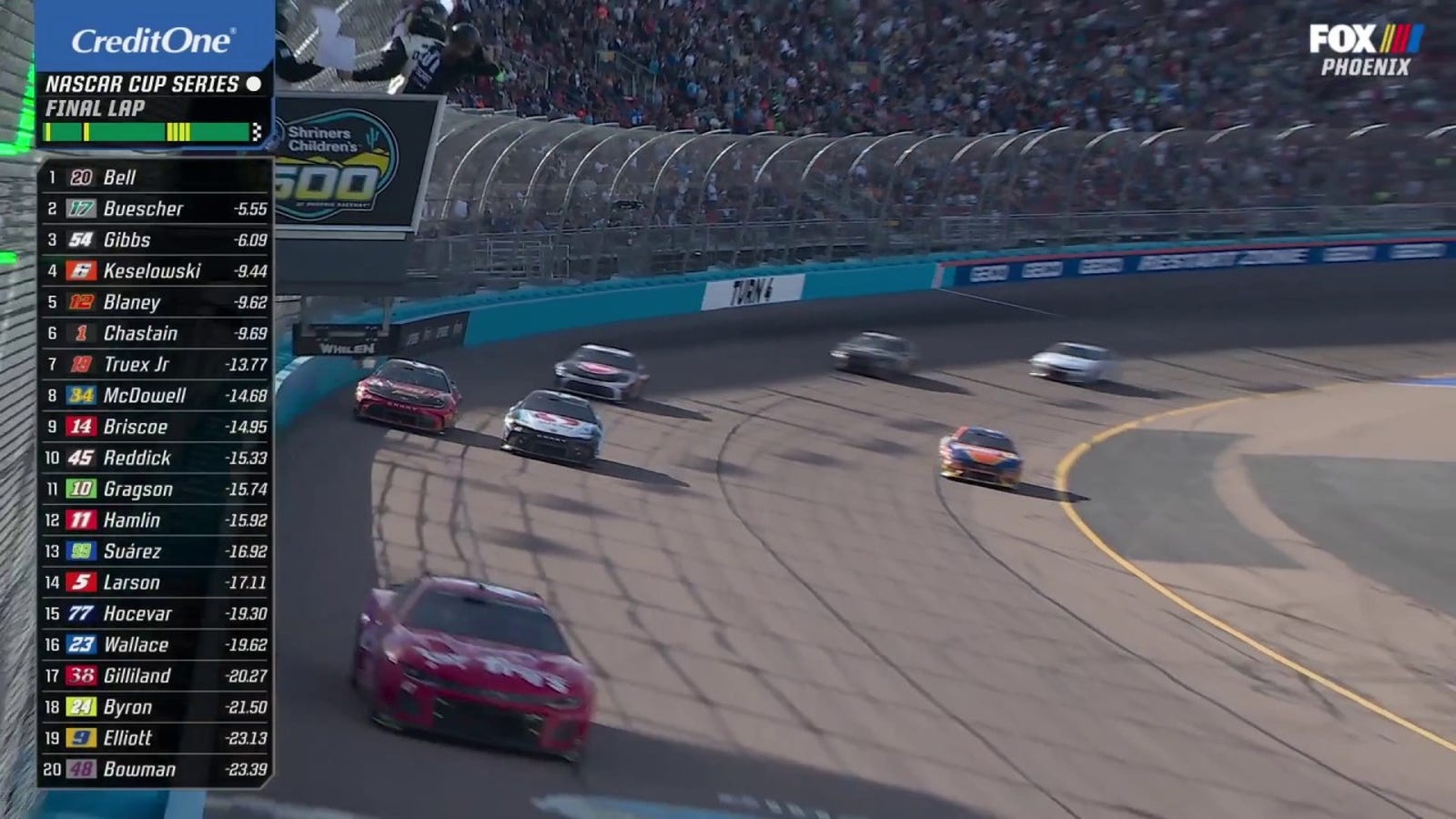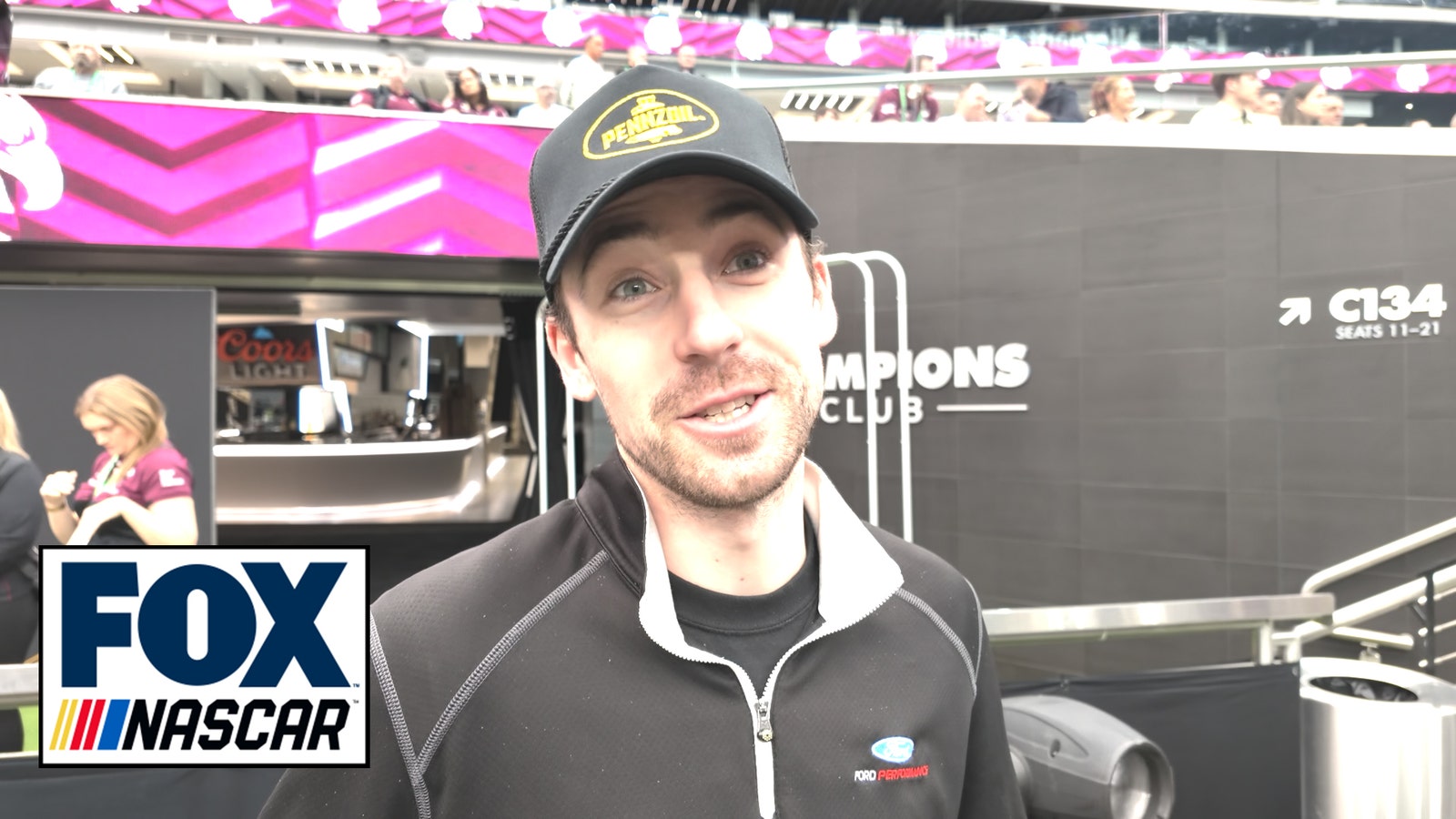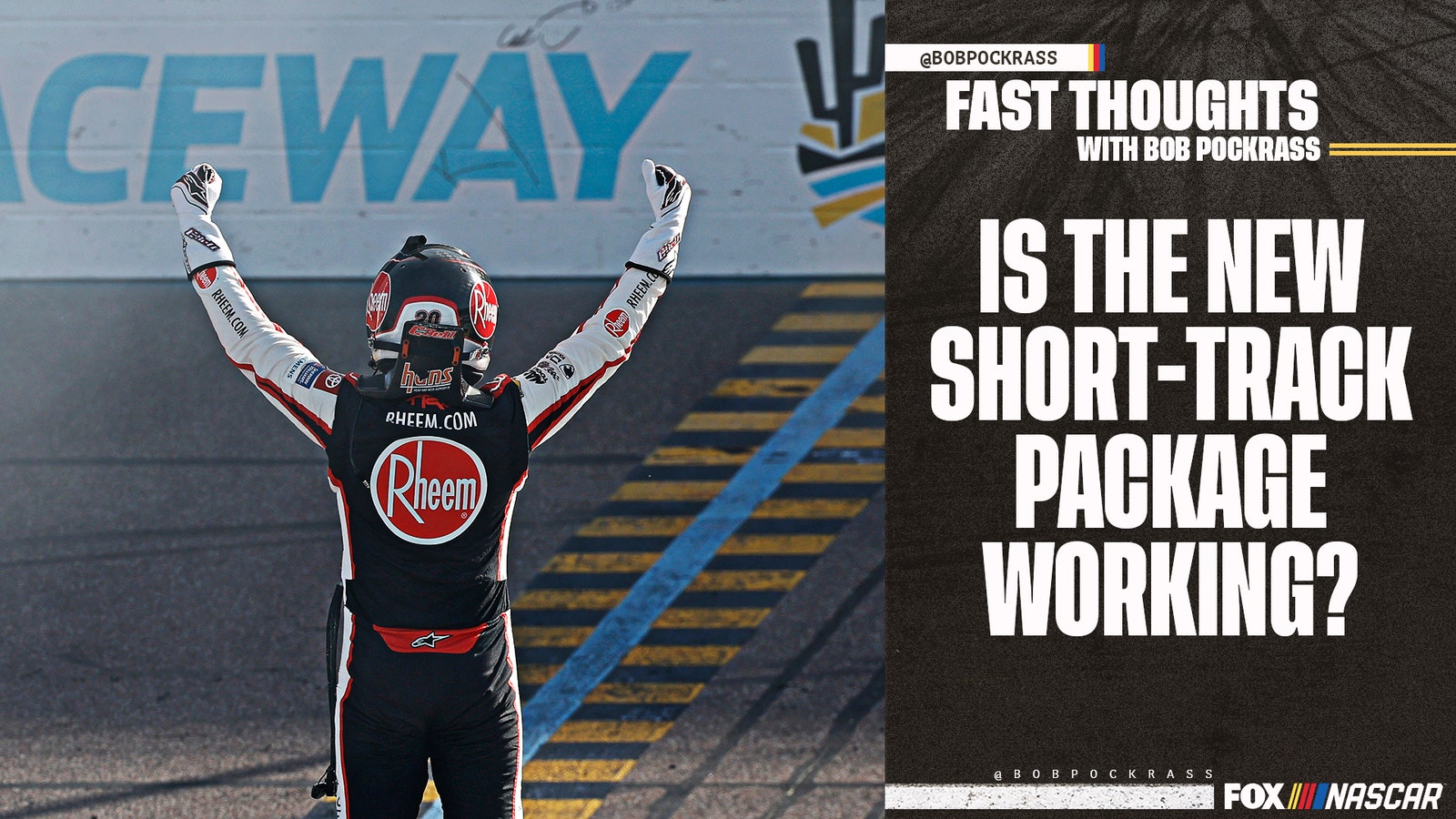
Four races into NASCAR's 2024 season, what have we learned?
AVONDALE, Ariz. — Four races into the 2024 season, what have teams and fans learned?
There seems to be much more learning to do.
Learning about how cars will race at short tracks, learning about how new Ford and Toyota body styles will race and learning just who will be the driver to beat this year.
Here are four significant developments from the first four races.
No clear favorites
Three of the four drivers who were the finalists with a shot to win the title on the final day of the 2023 season at Phoenix already have won a race. William Byron (the season-opener at Daytona), Kyle Larson (last week at Las Vegas) and Christopher Bell (Sunday at Phoenix) have lifted trophies.
But all three of those drivers have also had bad days. Larson (14th at Phoenix) and Byron (18th) were good at times but never great Sunday. Hendrick Motorsports missed it as a whole.
Bell knows the Joe Gibbs Racing cars were the ones primarily to beat Sunday, but he doesn't feel that says anything about the rest of the season.
"We showed up [here at Phoenix] and the Hendrick cars clearly missed it this week, right?" Bell said. "They're not going to miss it November whenever a championship is on the line, and they've had however many races to get their setup dialed in.
"Clearly the JGR cars and the Toyota group hit on the setup the best. We saw that in 2022, whenever Next Gen was first introduced, the Fords smoked everybody this race. It just takes time with these changes to optimize it."
No driver has more than two stage wins (Larson won both stages in his dominating performance at Las Vegas). Only three drivers — points leader Ryan Blaney (the defending Cup champion), Ross Chastain and Ty Gibbs — have three top-10s in the first four races (none have four).
Daniel Suarez (Atlanta) is the other winner this year, vaulting him into the playoffs a year after missing them.
New bodies? Still learning
The Fords and Toyotas are still figuring out their new body styles. As Bell put it, the first two races are hard to gauge because of the drafting and roll-the-dice nature of the superspeedway events. So the real evaluation started last week at the 1.5-mile Las Vegas Motor Speedway followed by the 1-mile Phoenix track.
Brad Keselowski finished 13th at Las Vegas and was never a factor in the new Ford body.
"We're learning the cars, and that takes some time," Keselowski said. "They're certainly different. The car has more potential than what we had last year. We have to figure out how to re-balance that with no practice and [no] testing.
"We don't know what we don't know until 50-100 laps into the race. ... We took a step backward to take two steps forwards."
There were three Fords in the top five at Phoenix, but part of that was pit strategy and a track where it was tough to pass.
"The potential is there," Keselowski said. "We are just one step away and we are going to keep working on it until we get there."
Things can't be too bad for the Fords — Blaney is the points leader.
"You'll get a really good idea here in the next month or so of where you stand and if you're in trouble or you're not," Blaney said.
With the win Sunday, the Toyota teams have to feel good that they at least didn't go backward with their new body.
"The secret to longevity in sports, in motorsports, is never get too high when the day goes your way, and never get too low when it doesn't because we're going to be racing again next week," Toyota Racing Development President David Wilson said.
"Phoenix will be in our rearview mirror."
Short-track work in progress
The short-track/road-course package remains a work in progress. The ability to pass appeared to be a little bit better Sunday.
Whether that was because of the changes in where the downforce was made on the cars (the main underbody piece was "simplified" to create less downforce but the spoiler was increased by one inch) or a different tire probably is still debatable.
"I got stuck behind a couple guys for an extended period," said Denny Hamlin. "The change in the car and the aerodynamic devices just is not a huge change. You really need to be significantly better than the car around you or they need to make a mistake.
"I eventually got around them but it took too long."
Bell didn't have those problems to the degree Hamlin did, but he was significantly better than his competition. Other drivers mired in the pack had the typical short-track frustrations of the last couple of years but did have some hope.
"I thought the package was better but the tires were an issue," said Chase Briscoe after a ninth-place finish. "The tires are so good that I think if you put this package on the right tire, it would be better for sure.
"We still have work to do. It was hard to pass. We were all kind of the same speed and I feel like it just comes down to the tire."
The next race with this package will be two weeks from now at Circuit of the Americas. Although Cup teams race at Bristol next week, that race will use the regular intermediate-track package because of the speeds generated on the high-banked concrete half-mile.
SHR showing good signs
Last year, it seemed only Kevin Harvick could notch top-10 finishes for Stewart-Haas Racing as the other three drivers combined for just 15 over the 36-race schedule.
This year, Chase Briscoe and Noah Gragson each have two top-10s in four races. It might not sound like much, but Briscoe certainly can see progress.
Briscoe averaged 18.3 points per race last year. This year, in four races, he is averaging 20.8 points and sits 19th overall. Gragson would be 15th overall if not for a 35-point penalty for a roof rail NASCAR took from his car a couple weeks ago.
"We've been way better," Briscoe said. "We've been chipping away at it little by little. We've got a little bit more to go.
"Hopefully we can just continue to be consistent every week."
[Want great stories delivered right to your inbox? Create or log in to your FOX Sports account, follow leagues, teams and players to receive a personalized newsletter daily.]
Bob Pockrass covers NASCAR for FOX Sports. He has spent decades covering motorsports, including over 30 Daytona 500s, with stints at ESPN, Sporting News, NASCAR Scene magazine and The (Daytona Beach) News-Journal. Follow him on Twitter @bobpockrass.









